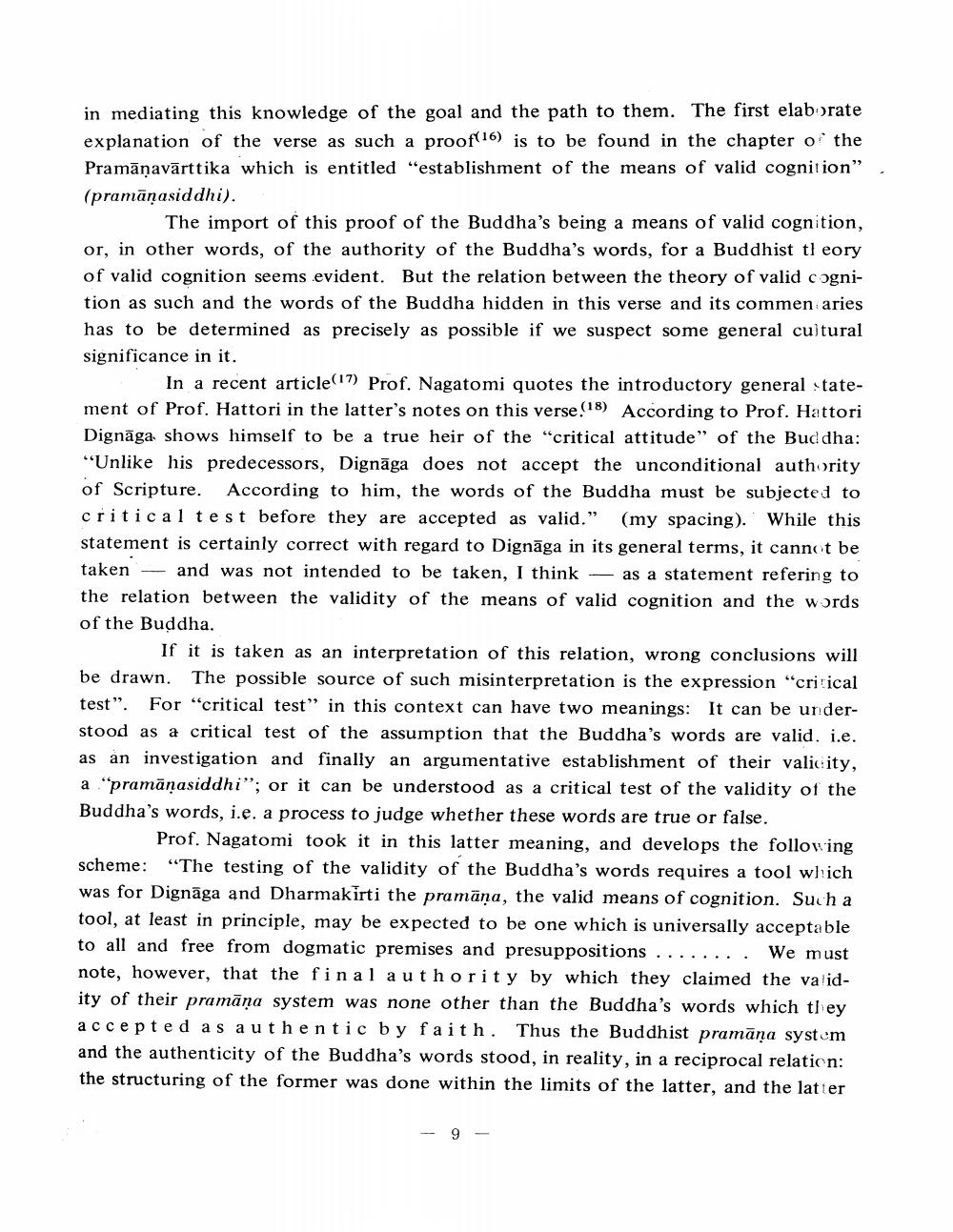Book Title: Spiritual Place Of Epistemological Tradition In Buddhism Author(s): Ernst Steinkellner Publisher: Ernst Steinkellner View full book textPage 9
________________ in mediating this knowledge of the goal and the path to them. The first elaborate explanation of the verse as such a proof(16) is to be found in the chapter of the Pramāņavārttika which is entitled "establishment of the means of valid cognition", (pramānasiddhi). The import of this proof of the Buddha's being a means of valid cognition, or, in other words, of the authority of the Buddha's words, for a Buddhist tl eory of valid cognition seems evident. But the relation between the theory of valid cognition as such and the words of the Buddha hidden in this verse and its commen aries has to be determined as precisely as possible if we suspect some general cultural significance in it. In a recent article(17) Prof. Nagatomi quotes the introductory general statement of Prof. Hattori in the latter's notes on this verse (18) According to Prof. Hattori Dignāga shows himself to be a true heir of the “critical attitude" of the Buddha: “Unlike his predecessors, Dignāga does not accept the unconditional authority of Scripture. According to him, the words of the Buddha must be subjected to critical test before they are accepted as valid.” (my spacing). While this statement is certainly correct with regard to Dignāga in its general terms, it cannot be taken — and was not intended to be taken, I think — as a statement refering to the relation between the validity of the means of valid cognition and the words of the Buddha. If it is taken as an interpretation of this relation, wrong conclusions will be drawn. The possible source of such misinterpretation is the expression "critical test". For “critical test" in this context can have two meanings: It can be understood as a critical test of the assumption that the Buddha's words are valid, i.e. as an investigation and finally an argumentative establishment of their valicity, a "pramāṇasiddhi”; or it can be understood as a critical test of the validity of the Buddha's words, i.e. a process to judge whether these words are true or false. Prof. Nagatomi took it in this latter meaning, and develops the following scheme: “The testing of the validity of the Buddha's words requires a tool which was for Dignāga and Dharmakirti the pramāna, the valid means of cognition. Such a tool, at least in principle, may be expected to be one which is universally acceptable to all and free from dogmatic premises and presuppositions ........ We must note, however, that the final authority by which they claimed the validity of their pramāņa system was none other than the Buddha's words which they accepted as authentic by faith. Thus the Buddhist pramāna system and the authenticity of the Buddha's words stood, in reality, in a reciprocal relation: the structuring of the former was done within the limits of the latter, and the latter - 9Page Navigation
1 ... 7 8 9 10 11 12 13 14 15 16 17 18
